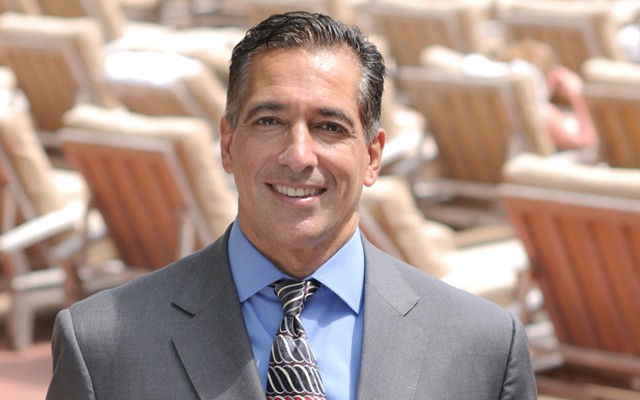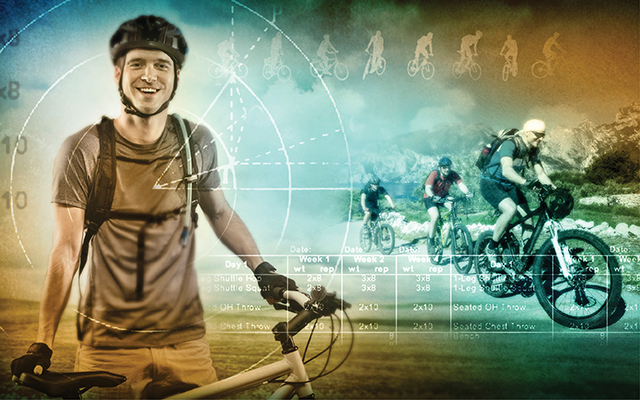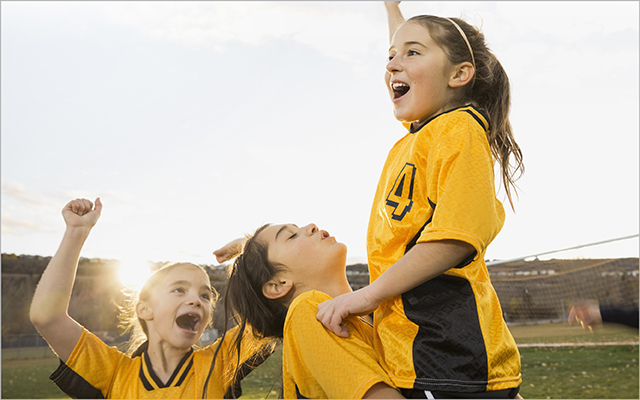When I was growing up in Tehran, sports were a central part of my life. As soon as school let out, I went home, dropped off my books, and headed out to meet up with the other kids in the neighborhood.
There was no organization or coaching. Instead, we were responsible for dividing ourselves into teams and refereeing our own play. With bricks and sticks as goals, we played soccer until our parents called us home for dinner.
Whether they were the best players or not, certain kids emerged as leaders. They took charge of motivating everyone to get going and helped those who might need a little encouragement. It was spontaneous and fun — just a bunch of us kids out there playing for the love of the game.
Contrast that with the ways many kids — including my own son — participate in youth athletics today: Sports are highly structured and there isn’t a lot of opportunity for creativity or play.
This format can be problematic for kids, as well as their parents and caregivers. If kids want a real shot at making a team, the whole family has to be committed. There are financial obligations, practices and games that usually take place multiple times a week and on weekends (often away from home), and significant time spent away from family and friends.
Specialization is also a widely reported concern about the current model. To make it in sports, especially in areas where they’re highly competitive, kids often have to choose one activity, maybe two, to focus on from a young age. Studies show this can lead to injury and burnout for those athletes.
Specialization, combined with competitiveness and a laser focus on being the best and winning, can result in fewer kids participating over the long term. Some may opt out on their own, while others won’t make the cut.
This limits the opportunities for those who enjoy a sport but aren’t stars. It minimizes the time they get to play with their friends and peers. And it’s one more obstacle to getting plenty of physical activity and establishing healthy habits, which are essential for physical and emotional well-being.
That’s not to say that youth sports don’t have their benefits — they absolutely do. Most programs have good coaches, and the focus on development, strategy, and teamwork can help kids grow. In fact, this aspect of organized sports is one of the pitfalls of free play: Without proper coaching, it’s easy to develop bad habits — and you often have to fix the habits before you can really excel in organized sports.
As my son has gotten more involved in sports, I’ve witnessed a lot of this firsthand, and it’s made me realize there has to be another way. So I began brainstorming about how to meld the best elements of free play and organized sports: flexibility; playing for fun; the opportunity to demonstrate leadership; lower costs; knowledgeable coaching; and skill development.
The result is one of our latest and most exciting offerings at Life Time: “organized pickup play,” or what we’ve dubbed Life Time Sport. It’s a model I’m passionate about because it’s the best of both worlds.
Life Time Sport is a venue for parents and caregivers to drop off the kids — whenever it’s convenient — for pickup games of soccer (and eventually other sports). Ten-minute games are organized by age and ability for ages 5 and up. Referees serve as coaches for certain age groups, stopping the game occasionally to share insights on skill development and strategy.
The primary goal, however, is to encourage kids to get out there, be active, and have fun. It’s a place for rising stars, multisport athletes, and those who just want to kick the ball around with their friends. Teens and adults can get in on the action, too.
The first Life Time Sport venues will open this month in Minnesota, and we’re making plans to roll out more across the country over the next few years. To learn more, visit LTSport.life.
In the meantime, I hope you’ll consider how your kids, grandkids, nieces, nephews, and any other special kids in your life are involved with sports and other recreational activities. As with all things, we want to strive for a healthy balance — let’s advocate that for our kids, too.




This Post Has 0 Comments